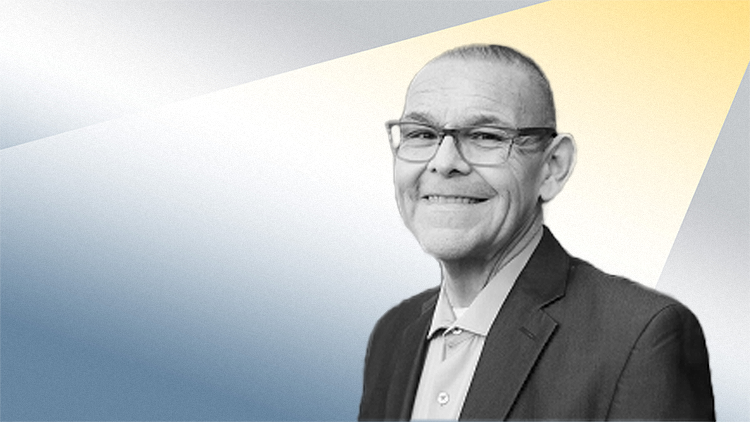Jane Overstreet earned a law degree from the University of Tulsa and did legal work for Christian organizations before joining Development Associates International as president and CEO 15 years ago. DAI is a nonprofit that provides training and consulting in leadership and organizational management to more than 10,000 Christian leaders in dozens of countries each year.
As a practicing lawyer dealing with many crises, Overstreet said she saw how “often leaders have great theological training but limited practical training in running an organization and managing people and money.”
She would watch a leader, for example, start a house church with 25 members, help it grow to 100 members and then see it reach 500. At that point, she said, things would implode, because the leader had no idea how to set up a structure, enable other people and delegate.
“Success, in many respects, breeds crisis,” Overstreet said.
DAI works to prevent that from happening, specifically for Christian leaders in developing countries such as Cote d’Ivoire, Papua New Guinea and Togo. It offers training programs and workshops, a master of arts degree in organizational leadership, and networking and intervention services. Through its Issachar Initiative, DAI also sponsors forums, facilitates mentoring programs and offers online training tools to support and develop young leaders.
Overstreet spoke with Faith & Leadership about DAI, how to manage a global and virtual organization, the challenges leaders face in developing countries, and her book “Unleader,” which compares and contrasts the leadership styles of Saul and David. The following is an edited transcript.
Q: What is DAI’s mission?
Everything that DAI does is focused on how to enable and encourage a leader to work effectively and keep growing spiritually. There are two things that encompass that: integrity and effectiveness.
Integrity is about the heart and the spiritual side. The effectiveness is about all the things you would normally associate with management and leadership. Over the years, we’ve found that there are a lot of different ways to intervene and help those leaders grow.
Q: What have you found to be the best ways to do that?
Generally speaking, one of the biggest things I’ve learned is to listen more and talk less.
A lot of leadership development seems to be focused around people telling other people how to do things better. But what we have found is that the more that we ask really good questions, the more we help people arrive at their own conclusions and take that one step further, and the more space they’re given the opportunity to learn from each other, that seems to be more effective in helping people grow.
When you do a lot of speaking and a lot of telling of your own stories, that can be inspirational, but it doesn’t always help that person actually translate that into something that’s going to change their day when they get back to the office on Monday. What we’re always looking for is how we can really help them take a growth step.
Q: How does DAI try to help leaders do that?
We’re always pragmatic. A lot of the leaders I work with can do a much better sermon on the topic of servant leadership than I can, but if you interviewed their staff, you would find they were just some of the worst bosses out there. There’s a disconnect somewhere.
So a lot of times what we’ll do is kind of hold up a mirror and let people look at themselves a bit through a series of exercises, case studies, evaluative things, assessments -- that kind of thing.
Then slowly but surely we help them realize that there might be a gap between what they say and what they do, and we let them discover that and see what it would look like to change that.
It’s terribly practical.
Q: Your organization is based in Colorado working with leaders primarily in developing countries, and you’ve also described your organization as a “virtual organization.” How do you manage an international, virtual organization?
Everything we do is very relational. As I travel and sit with our leaders in different parts of the world, I ask questions and I get to see what’s working well.
My primary job is to make sure that we’re all lining up as far as our core values and our vision. It’s fascinating to see what’s going on and what’s working most effectively, and if it seems like we’re moving off target, I’ll challenge them. So that’s one way -- traveling and interacting on the ground.
All the senior leadership also sits down together periodically, and we compare stories of what’s working best and what trends we see. Some of those are very local to the context. What’s going on in China may look very different from what’s going on in Argentina, but we try to figure out what the common denominators are and how we can learn from each other. There’s a lot of organizational learning that takes place.
We try to do some of it electronically, but because of the cultural differences and the lack of technology access and savvy in some of the places we work, a lot more of it happens face to face.
Q: What are the challenges that young Christian leaders in developing countries face?
We’re working mostly in Asia and some in Africa at the moment. They really want help in how to have real relationships. They want mentors who can relate to the questions they’re facing.
I’ll give you a real example so you’ll get an idea. We’ve got a lot of call center workers in India who are Christians, and they’re asking for help in how to live out their faith in that situation. They can’t really go to their parents, because their parents have never lived in a city -- they’ve never even used a cellphone -- and they just can’t relate to the issues the kids have.
So the young leaders need somebody who can help them bridge their elders’ cultures with the modern world and issues they’re facing today.
In Asia, we’re hitting lots of questions about relationships. How do guys and girls meet each other in a way that’s not immoral, and how can they find each other? Because traditionally their cultures primarily had arranged marriages, with parents making all those decisions.
Q: With your organization being so global, how do you pair up mentors and mentees?
Typically, we might do a combination of things. First, we’ll ask younger leaders to find their own mentors, and we’ll give them qualifications to look for. Who do you trust? Who would you go to for answers? Who do you think would have time to sit down with you regularly? We think it needs to be somebody local and somebody who they can build a relationship with.
Secondly, we help older leaders realize that part of their leadership role is to be a mentor.
Q: How do you get older leaders to do that?
We teach it, we model it, and then when we see it, we try to reinforce it. Again, this is about being practical. You can teach something all you want to, but if no one has ever seen it before, they have no idea what you’re talking about in real life. So the modeling of it seems to be really critical.
And then, we encourage people in it. Sometimes people are shy about it; they don’t know what a mentor looks like, and they’re afraid to be one. So we’ll talk about, “Who in your life has ever made a real contribution? What did that relationship look like?” “Ah, OK, so you have experienced this.” It’s actually more common in traditional cultures than people would realize. They just don’t call it mentoring.
Q: Your book is titled “Unleader.” What is it about?
It’s primarily a comparison between Saul and David. I wrote it because I got involved in a yearlong study of the subject, which initially was to prepare for some speaking at a conference. It turned into a passion, partially because David’s and Saul’s beginnings were so similar.
They were both within God’s tribe, if you will, and they were both called and anointed. Yet their outcomes were so different. It became fascinating for me to see how they ended their lives so differently, and we’re given the opportunity to glean lessons from their victories and failures.
Q: What does it mean to be an “unleader”?
I think the term “leader” has been corrupted. Most people think of a leader as someone who’s in control of everything. Instead, a leader is supposed to be someone who’s enabling everyone else to use their gifts and do the things they’re called to do.
So “unleader” is a very upside-down concept and makes you rethink what a leader is.
Q: What have you learned is the most effective leadership development strategy?
Relationships. The young man who’s heading our emerging leaders initiative is doing small group events, letting young people talk about their questions and their issues. He started out thinking that he would get these brilliant speakers and big names as a draw. After doing a few of those and looking at the evaluations, people said what they really wanted to do was talk to each other and spend time together and listen. So he shifted the events and direction, and it’s gotten very interesting results.
Young people want to talk about real issues and have real discussions, and they want to be heard. It’s pretty simple in that sense. They want somebody to challenge them, to keep walking alongside them and to encourage them.





